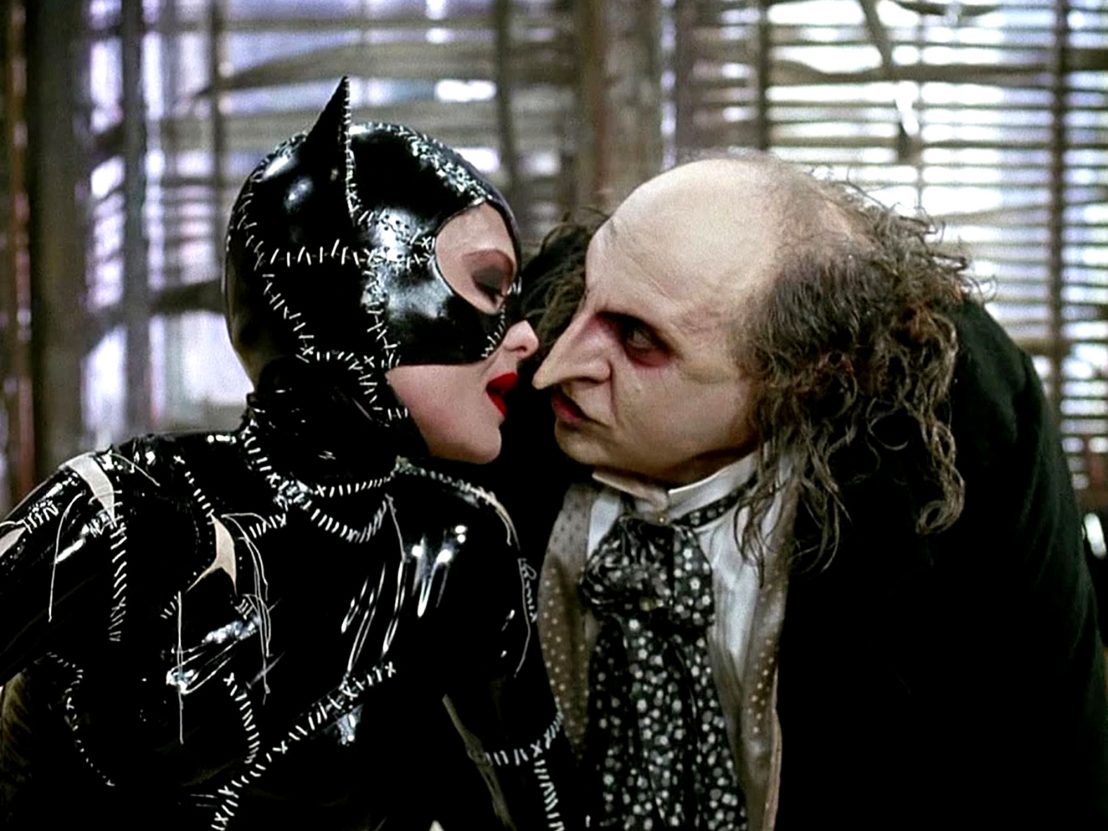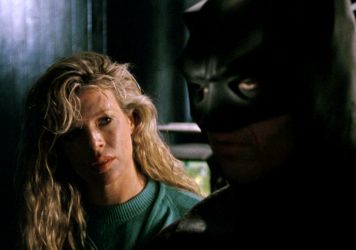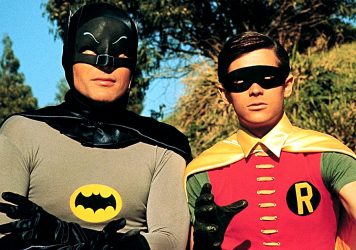
The entire superhero genre hinges on the never-ending dance between good and evil. Audiences are supposed to be inspired by the selfless acts of heroes like Superman, Batman, Iron Man, or Wonder Woman, individuals with the powers of gods or the bank accounts to buy them. Yet decades worth of comic book lore has also produced a number of villains who, despite their obvious treachery, are far more relatable to those of us who can’t see ourselves in the genre’s biggest names.
The Penguin is an anomaly within Batman’s rogues gallery of baddies. Oswald Cobblepot is neither insane like The Joker or Two-Face, nor intent on transforming Gotham into a dystopian hellscape like Mr Freeze or Bane. Created in 1941 by legendary comic book writers Bob Kane and Bill Finger, The Penguin operates more like an old-fashioned gangster than any of his costumed peers.
Spearheaded by Tim Burton’s Batman Returns, the ’90s brought about many changes to the character in order to bring Cobblepot more in line physically with an actual penguin, including webbed hands. Danny DeVito’s monstrous portrayal represented a sharp departure from his previous styling as an elegant aristocratic mob boss seen in the comics and in Burgess Meredith’s take for the ’60s Batman television series. The common denominator across The Penguin’s 80-year existence is his resounding sense of ugliness.
Burton largely sidelines Batman in favour of The Penguin as the emotional core of Batman Returns. The film begins with a flashback sequence where a newborn Oswald is cruelly rejected by his parents; locked in a cage before being tossed over a bridge in a bassinet. Deemed unworthy to live in ordinary society, Cobblepot spends the next few decades living among the penguins at Gotham Zoo, developing a warped perspective on morality along the way. It’s not until halfway through the film that The Penguin even learns his real name.
Transgender people are forced to live in a society that constantly belittles our own humanity. Laws restricting access to public toilets or adequate medical care exist to reinforce our perceived status as second-class citizens, unworthy of basic human dignity. Anti-transgender campaigners are frequently given media platforms denied to trans people, which they use to send a loud public message that we do not belong in their world.
Every single one of The Penguin’s relationships in Batman Returns are transactional in nature. He captures Max Shreck (Christopher Walken) in the film’s opening fight sequence, intending to blackmail the shady business mogul into assisting him with a staged kidnapping of the mayor’s baby in order to take credit for its rescue. Shreck not only participates willingly, he befriends Cobblepot and plants the seeds for The Penguin’s mayoral candidacy.
The Penguin similarly understands that the media’s sympathy for his story hinges on his ability to sell them a narrative worthy to print. He turns a visit to his parents’ graves into a publicity event; surrounded by cameras, Cobblepot earns the public’s adulation with his disingenuous conciliatory message of forgiveness. Without that feel-good moment, Cobblepot’s story would be no different from any other homeless person who lived in the sewers.
“The Penguin teaches us to cast aside the burdens of conformity in our pursuit of a meaningful existence.”
With so few trans journalists employed by prominent outlets, trans people do well to follow The Penguin’s lead when engaging the media, who often frame our lives in the most sensational ways possible. Narratives about trans people tend to focus on pain and misery, reinforcing the public perception that our lives are universally terrible. It is deeply dehumanising to experience shock and surprise from a cisgender person upon hearing that trans people can lead happy, normal lives.
The goal of transition is not to not look trans, but rather to be at ease with the reflection of one’s self in the mirror. The Penguin doesn’t want to be normal – he wants to be heard. A cisgender perspective might see “passing” as a way for trans people to conceal their transness, but self-love can exist independent from assimilation. The Penguin teaches us to cast aside the burdens of conformity in our pursuit of a meaningful existence.
The Penguin delivers his most astute observation early on in Batman Returns. Cobblepot notes to Shreck that they’re both perceived as monsters – the only difference being that the businessman is a well-respected one. Anti-trans campaigners claim that trans people are a danger to society, but their manufactured outrage is really about basic respect and which among us are entitled to receive it. Conditional equality is not equality.
Batman is an inspirational figure for many reasons, but he’s hardly a great role model. There are far better uses for the Wayne fortune than to fund a man running around rooftops in a rubber suit. Batman strives to create a better world, but it’s a goal he’ll never reach as long as there’s another week’s worth of comic books to fill the shelves.
While The Penguin captivates Gotham’s media early on in Batman Returns, Bruce Wayne (Michael Keaton) takes a more skeptic approach, declining to use his vast resources to help in the search for Cobblepot’s birth parents. Although Batman’s reservations turn out to be warranted, Wayne hardly looks noble in prejudging the situation. Transgender people rarely receive the benefit of the doubt.
Trans people long for a world where we don’t open our phones to find messages from strangers on social media urging us to kill ourselves. A week without death threats is as rare as a sunny day in Gotham. Batman offers hope for a brighter tomorrow, but The Penguin lives in the world of today, which is an often unforgiving environment to people who look a little different. You don’t need to forgive his villainy to feel inspired by his relentless ambition to thrive in a city that quite literally left him for dead.
Published 17 Oct 2021

The director’s vision of Gotham City remains one of blockbuster cinema’s greatest creations.

How the language we use to talk about art which explores subjects of gender and identity can evolve.

By Greg Evans
Way before the Dark Knight got serious, he was thwacking bad guys and dismantling bombs in a slapstick ’60s family film.